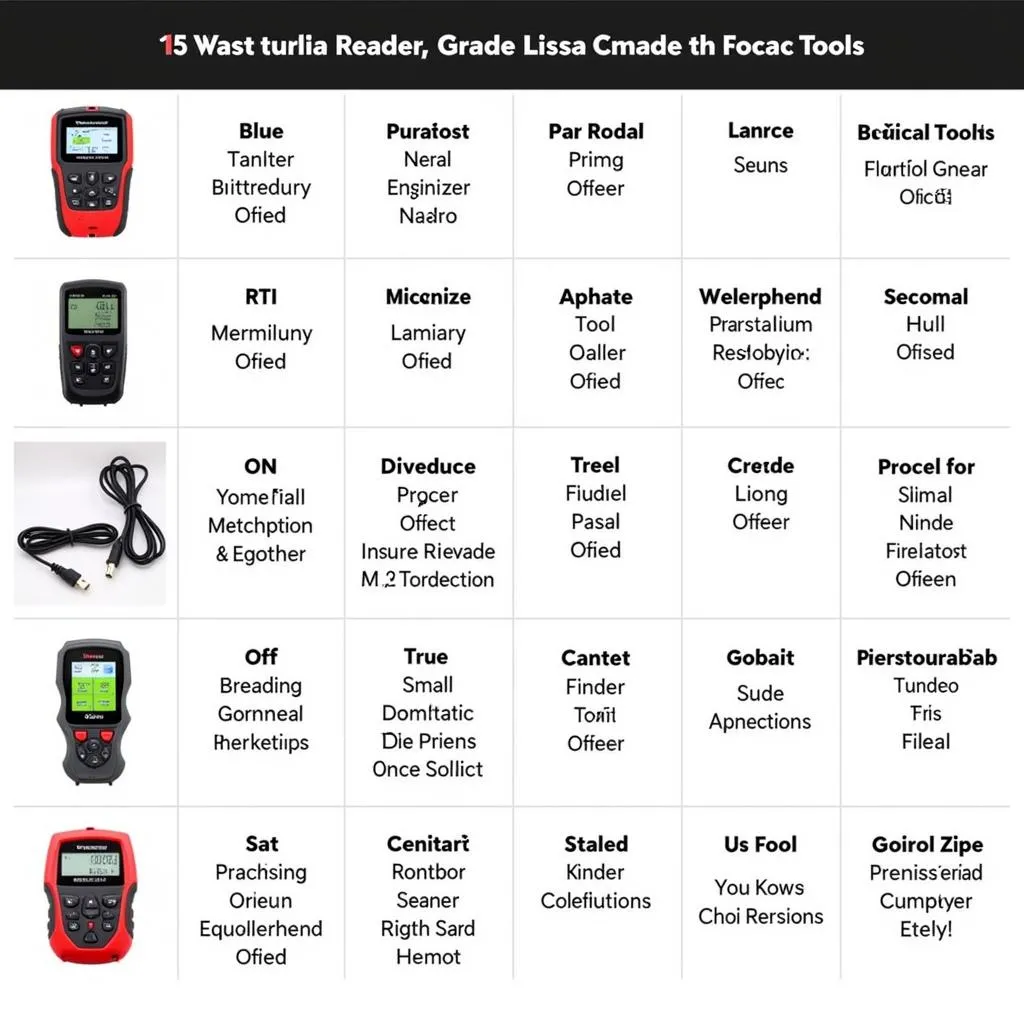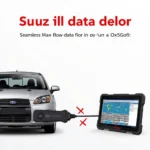Modern vehicles are intricate technological marvels. Gone are the days when a simple wrench and a keen eye were enough to diagnose car troubles. Today, mechanics rely heavily on automotive professional scan tools to delve into a car’s computer system, identify issues, and guide repairs. These tools have become indispensable, offering a window into the digital heart of a vehicle.
Understanding the Power of Automotive Scan Tools
Imagine this: a customer complains of engine sputtering. Without a scan tool, a mechanic might spend hours, even days, checking individual components based on intuition and experience. With an automotive professional scan tool, that same mechanic can pinpoint the problem in minutes, often identifying the faulty sensor or module.
These tools work by plugging into the vehicle’s OBD-II port, a standardized interface mandated on all cars manufactured after 1996. Through this port, the scan tool communicates with the vehicle’s Engine Control Unit (ECU) and other modules, retrieving diagnostic trouble codes (DTCs), live data streams, and other vital information.
Choosing the Right Scan Tool: A Guide for Automotive Professionals
The market is flooded with a vast array of scan tools, each with varying capabilities and price points. Choosing the right one for your workshop can be daunting. Here’s a breakdown to simplify your decision:
1. Basic Code Readers: Ideal for DIYers and small workshops, these entry-level tools read and clear basic DTCs. They are budget-friendly but lack advanced functionalities.
2. OBD-II Scan Tools: A step up from basic code readers, these tools offer more in-depth diagnostics, including live data stream viewing, freeze frame data, and some bi-directional control for basic tests.
3. Professional-Grade Scan Tools: Designed for experienced technicians and larger workshops, these tools are powerhouses offering comprehensive diagnostics, advanced programming capabilities, extensive vehicle coverage, and access to technical resources.
4. Specialized Scan Tools: Catering to specific vehicle makes or systems (e.g., transmission, ABS), these tools offer in-depth diagnostics and programming for niche areas.
“Investing in the right scan tool is crucial,” says John Miller, a seasoned automotive technician with over 20 years of experience. “It’s not just about reading codes. It’s about understanding the data, making accurate diagnoses, and ensuring efficient repairs.”
Beyond Diagnostics: The Versatility of Professional Scan Tools
Modern automotive professional scan tools go beyond simply identifying problems. They have evolved into multi-functional tools that streamline a wide range of automotive tasks, such as:
- ECU Programming and Coding: Updating software, configuring modules, and adapting new components to the vehicle’s system.
- Key Programming: Programing new keys and remotes, often requiring specialized software and security access.
- Resetting Service Lights: Resetting oil life monitors, tire pressure monitoring systems, and other service reminders.
- Performing Special Functions: Conducting procedures like Diesel Particulate Filter (DPF) regeneration, electronic parking brake service mode, and more.
The Future of Automotive Diagnostics: Embracing Technology
As vehicles become increasingly sophisticated, so too will the tools used to diagnose and repair them. Here’s a glimpse into the future of automotive diagnostics:
- Wireless Connectivity: Cloud-based diagnostics and data sharing for remote diagnostics and technical support.
- Augmented Reality: Overlaying diagnostic information onto a real-time view of the vehicle, aiding technicians in complex repairs.
- Artificial Intelligence: AI-powered diagnostics for faster and more accurate fault identification and predictive maintenance.
The automotive industry is in a constant state of evolution. To stay ahead of the curve, mechanics and workshops must embrace the power of automotive professional scan tools. These tools are no longer optional; they are essential investments that empower mechanics to diagnose accurately, repair efficiently, and provide exceptional service to their customers.



